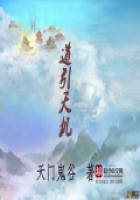To go my own way, and yet to follow the ancients, the principles of government are twofold: internal, or the goods of the mind; and external, or the goods of fortune. The goods of the mind are natural or acquired virtues, as wisdom, prudence, and courage, etc. The goods of fortune are riches. There be goods also of the body, as health, beauty, strength; but these are not to be brought into account upon this score, because if a man or an army acquires victory or empire, it is more from their discipline, arms, and courage than from their natural health, beauty, or strength, in regard that a people conquered may have more of natural strength, beauty, and health, and yet find little remedy. The principles of government then are in the goods of the mind, or in the goods of fortune. To the goods of the mind answers authority; to the goods of fortune, power or empire.
Wherefore Leviathan, though he be right where he says that "riches are power," is mistaken where he says that "prudence, or the reputation of prudence, is power;" for the learning or prudence of a man is no more power than the learning or prudence of a book or author, which is properly authority. A learned writer may have authority though he has no power; and a foolish magistrate may have power, though he has otherwise no esteem or authority. The difference of these two is observed by Livy in Evander, of whom he says that he governed rather by the authority of others than by his own power.
To begin with riches, in regard that men are hung upon these, not of choice as upon the other, but of necessity and by the teeth; forasmuch as he who wants bread is his servant that will feed him, if a man thus feeds a whole people, they are under his empire.
Empire is of two kinds, domestic and national, or foreign and provincial.
Domestic empire is founded upon dominion. Dominion is property, real or personal; that is to say, in lands, or in money and goods.
Lands, or the parts and parcels of a territory, are held by the proprietor or proprietors, lord or lords of it, in some proportion; and such (except it be in a city that has little or no land, and whose revenue is in trade) as is the proportion or balance of dominion or property in land, such is the nature of the empire.
If one man be sole landlord of a territory, or overbalance the people, for example, three parts in four, he is grand seignior; for so the Turk is called from his property, and his empire is absolute monarchy.
If the few or a nobility, or a nobility with the clergy, be landlords, or overbalance the people to the like proportion, it makes the Gothic balance (to be shown at large in the second part of this discourse), and the empire is mixed monarchy, as that of Spain, Poland, and late of Oceana.
And if the whole people be landlords, or hold the lands so divided among them that no one man, or number of men, within the compass of the few or aristocracy, overbalance them, the empire (without the interposition of force) is a commonwealth.
If force be interposed in any of these three cases, it must either frame the government to the foundation, or the foundation to the government; or holding the government not according to the balance, it is not natural, but violent; and therefore if it be at the devotion of a prince, it is tyranny; if at the devotion of the few, oligarchy; or if in the power of the people, anarchy:
Each of which confusions, the balance standing otherwise, is but of short continuance, because against the nature of the balance, which, not destroyed, destroys that which opposes it.
But there be certain other confusions, which, being rooted in the balance, are of longer continuance, and of worse consequence;as, first, where a nobility holds half the property, or about that proportion, and the people the other half; in which case, without altering the balance there is no remedy but the one must eat out the other, as the people did the nobility in Athens, and the nobility the people in Rome. Secondly, when a prince holds about half the dominion, and the people the other half (which was the case of the Roman emperors, planted partly upon their military colonies and partly upon the Senate and the people), the government becomes a very shambles, both of the princes and the people. Somewhat of this nature are certain governments at this day, which are said to subsist by confusion. In this case, to fix the balance is to entail misery; but in the three former, not to fix it is to lose the government. Wherefore it being unlawful in Turkey that any should possess land but the Grand Seignior, the balance is fixed by the law, and that empire firm. Nor, though the kings often sell was the throne of Oceana known to shake, until the statute of alienations broke the pillars, by giving way to the nobility to sell their estates. While Lacedaemon held to the division of land made by Lycurgus, it was immovable; but, breaking that, could stand no longer. This kind of law fixing the balance in lands is called agrarian, and was first introduced by God himself, who divided the land of Canaan to his people by lots, and is of such virtue that wherever it has held, that government has not altered, except by consent; as in that unparalleled example of the people of Israel, when being in liberty they would needs choose a king. But without an agrarian law, government, whether monarchical, aristocratical, or popular, has no long lease.
As for dominion, personal or in money, it may now and then stir up a Melius or a Manlius, which, if the Commonwealth be not provided with some kind of dictatorian power, may be dangerous, though it has been seldom or never successful; because to property producing empire, it is required that it should have some certain root or foothold, which, except in land, it cannot have, being otherwise as it were upon the wing.
Nevertheless, in such cities as subsist mostly by trade, and have little or no land, as Holland and Genoa, the balance of treasure may be equal to that of land in the cases mentioned.














